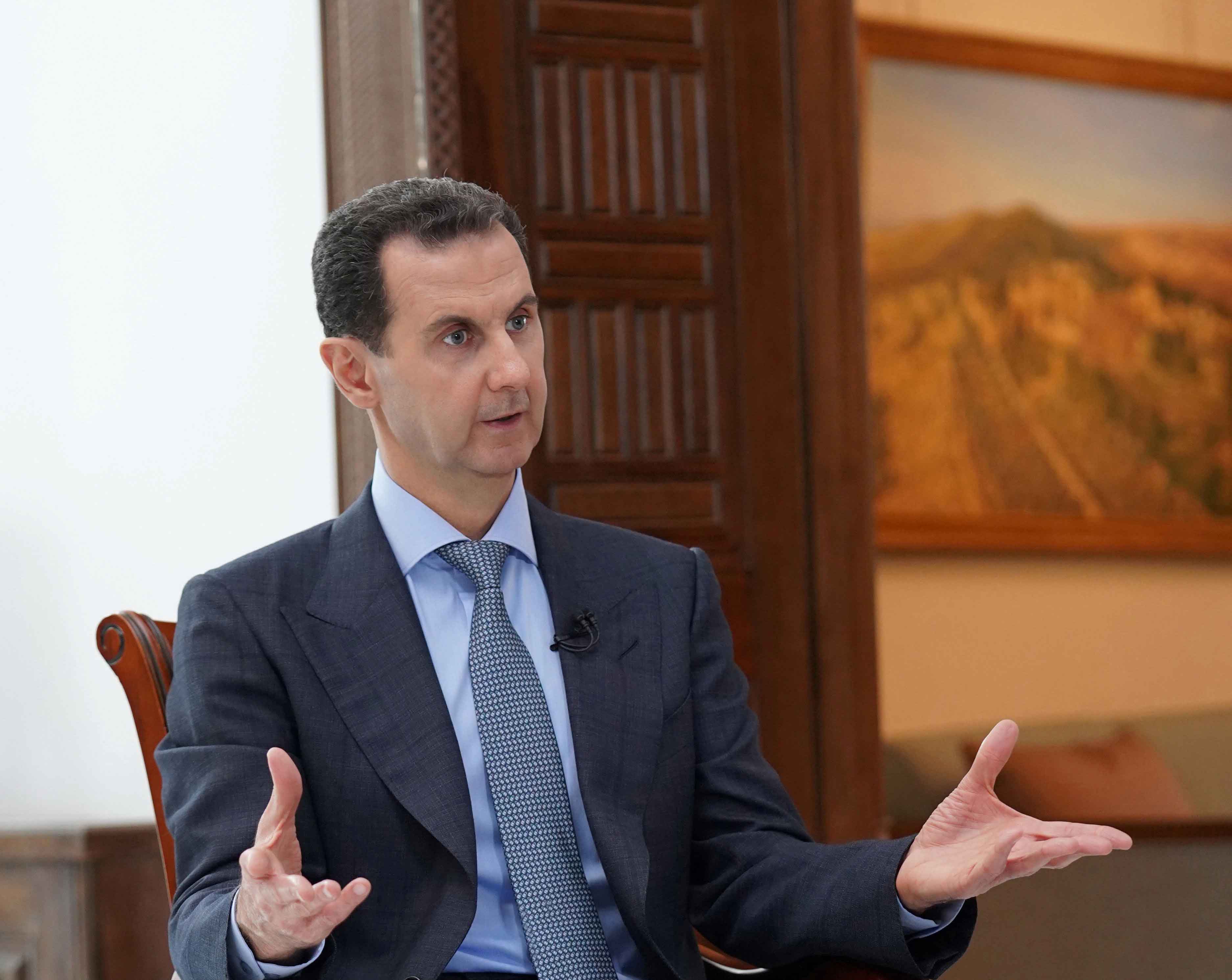


Barran Press
In his first comments since the fall of his regime, ousted Syrian President Bashar al-Assad stated that he did not leave Syria "as part of a planned strategy" nor did he seek asylum in Russia. He asserted, "I remained in Damascus fulfilling my responsibilities until the early hours of Sunday, December 8."
In a statement released on the official presidential account, which still appears to be affiliated with his former government, Assad explained that he fled to Russia amidst the advance of opposition forces into Damascus on December 8.
The statement began with, "After several unsuccessful attempts to disseminate this statement through Arab and foreign media, the only available method was to publish it on the social media platforms of the former presidential office."
Assad emphasized, "I did not leave the country as planned, as has been rumored, nor did I leave during the final hours of the battles," noting that he stayed in Damascus "to fulfill my responsibilities until the early hours of Sunday."
He added that as "terrorism expanded within Damascus," he coordinated with Russian allies to relocate to Latakia to oversee military operations from there. Following his transfer to Hmeimim, he reported that forces began withdrawing from all combat lines and the last military positions fell.
Assad recounted that as the situation deteriorated and attacks escalated, particularly on the Russian base itself by drones, Moscow requested immediate evacuation to Russia on Sunday evening, the day after the fall of Damascus and the collapse of the last military strongholds.
He stated that no discussions about seeking asylum or resignation took place during these events, emphasizing that the only option presented was to continue fighting against the terrorist offensive.
The former Syrian leader's abrupt flight to Russia shocked the world, especially as armed opposition factions took control of the government. After hours of speculation regarding his fate following the opposition's takeover of Damascus, Moscow officially confirmed that it granted Assad humanitarian asylum.
Videos circulated on social media showing Assad making statements approximately a year after the protests erupted in 2011, where he defined a "traitor" as someone who abandons their country amid a crisis—a notion many now view as self-fulfilling.
In his new statement, Assad declared, "I affirm that the one who refused from day one of the war to trade his homeland's salvation for his personal safety, or to bargain with his people for various offers and temptations, is the same person who stood with the officers and soldiers of his army on the front lines, mere meters away from terrorists in the hottest and most dangerous conflict zones."
He continued, "I have never sought personal positions; I considered myself a champion of a national project supported by a people who believed in it."
Assad lamented that when the state fell under the weight of terrorism, and the ability to provide any services was lost, the position became meaningless.
As the Assad regime fell, armed factions led by Hay'at Tahrir al-Sham took control, ending over five decades of Assad family rule.
Syrian Transitional Government head Mohammed Bashir stated that efforts during his three-month tenure will focus on restoring stability and security while addressing the severe economic crisis facing the nation.
On Saturday, Arab ministers, along with representatives from the EU and Turkey, convened in Aqaba, Jordan, to discuss Syria, supporting the formation of an inclusive transitional governing body to facilitate a political system that meets the aspirations of the Syrian people through free and fair elections overseen by the UN.
UN Special Envoy to Syria Geir Pedersen, upon arriving in Damascus, affirmed that the political process "must be inclusive and led by the Syrians themselves," expressing hope for the eventual lifting of sanctions on the country.
In the wake of Assad's unexpected departure from power, activists and lawyers have embarked on a "difficult journey" to uncover the vast wealth believed to have been amassed by the Assad family and their allies over the past half-century since Hafez al-Assad's rise to power in 1970.